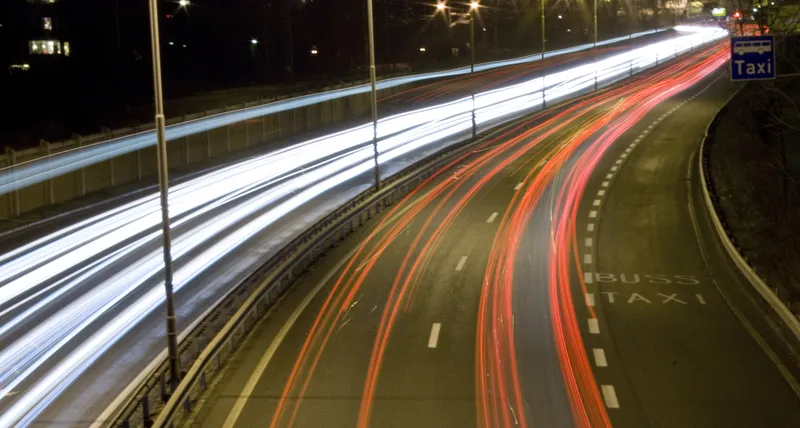Multi-lane free-flow toll systems lower the operational risk of highway concessions, according to toll road operator Renovias Concessionária, which implemented the first such system in Brazil.
"Operational risk is lower than manned toll booths as no workers are needed," Renovias maintenance manager Michell Costa told BNamericas.
The system in place on São Paulo state highway SP340 detects the electronic fee collection tags in vehicles using both 5.8GHz and 915MHz frequencies, and captures front and re
April 23, 2015
Read time: 2 mins
Multi-lane free-flow toll systems lower the operational risk of highway concessions, according to toll road operator Renovias Concessionária, which implemented the first such system in Brazil.
"Operational risk is lower than manned toll booths as no workers are needed," Renovias maintenance manager Michell Costa told BNamericas.
The system in place on São Paulo state highway SP340 detects the electronic fee collection tags in vehicles using both 5.8GHz and 915MHz frequencies, and captures front and rear license plates with optical character recognition (OCR) cameras.
Renovias, which manages 346 kilometres of state roads, took the system live in 2013. It serves more than 2.25 million residents in the Campinas metropolitan region.
Costa said that toll payment evasion is the main reason why free-flow toll systems have not taken off in Brazil as much as in the Chilean capital of Santiago, where they have been in place since 2005.
The four main toll operators in Santiago – Vespucio Norte, Autopista Central, Costanera Norte and Vespucio Sur – recorded a total of US$320 million in delinquent toll payments in 2014, as drivers modify or remove license plates, or refuse to sign up for tags or purchase a daily pass.
"Operational risk is lower than manned toll booths as no workers are needed," Renovias maintenance manager Michell Costa told BNamericas.
The system in place on São Paulo state highway SP340 detects the electronic fee collection tags in vehicles using both 5.8GHz and 915MHz frequencies, and captures front and rear license plates with optical character recognition (OCR) cameras.
Renovias, which manages 346 kilometres of state roads, took the system live in 2013. It serves more than 2.25 million residents in the Campinas metropolitan region.
Costa said that toll payment evasion is the main reason why free-flow toll systems have not taken off in Brazil as much as in the Chilean capital of Santiago, where they have been in place since 2005.
The four main toll operators in Santiago – Vespucio Norte, Autopista Central, Costanera Norte and Vespucio Sur – recorded a total of US$320 million in delinquent toll payments in 2014, as drivers modify or remove license plates, or refuse to sign up for tags or purchase a daily pass.








